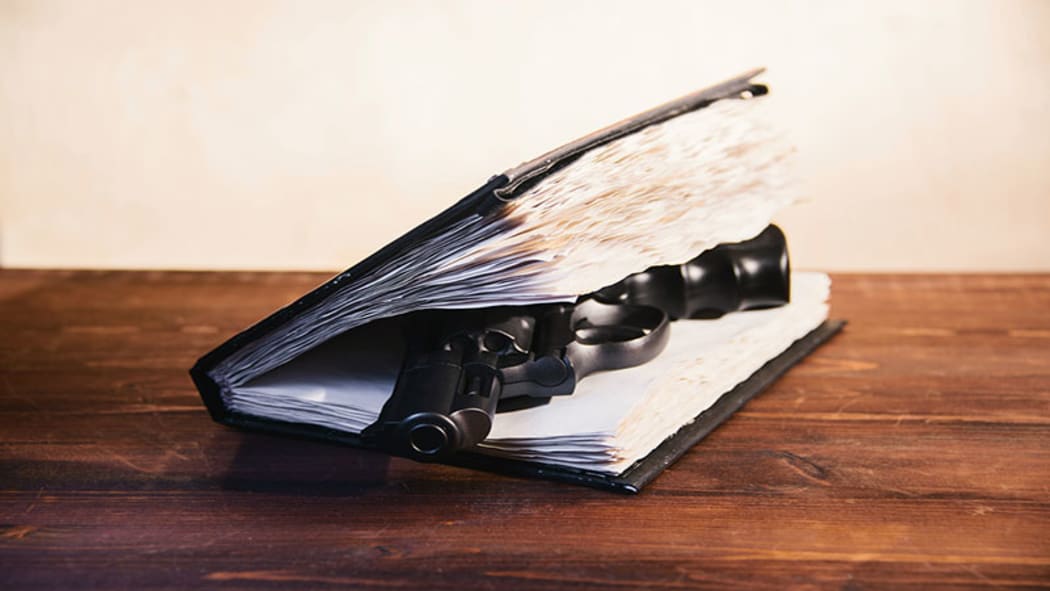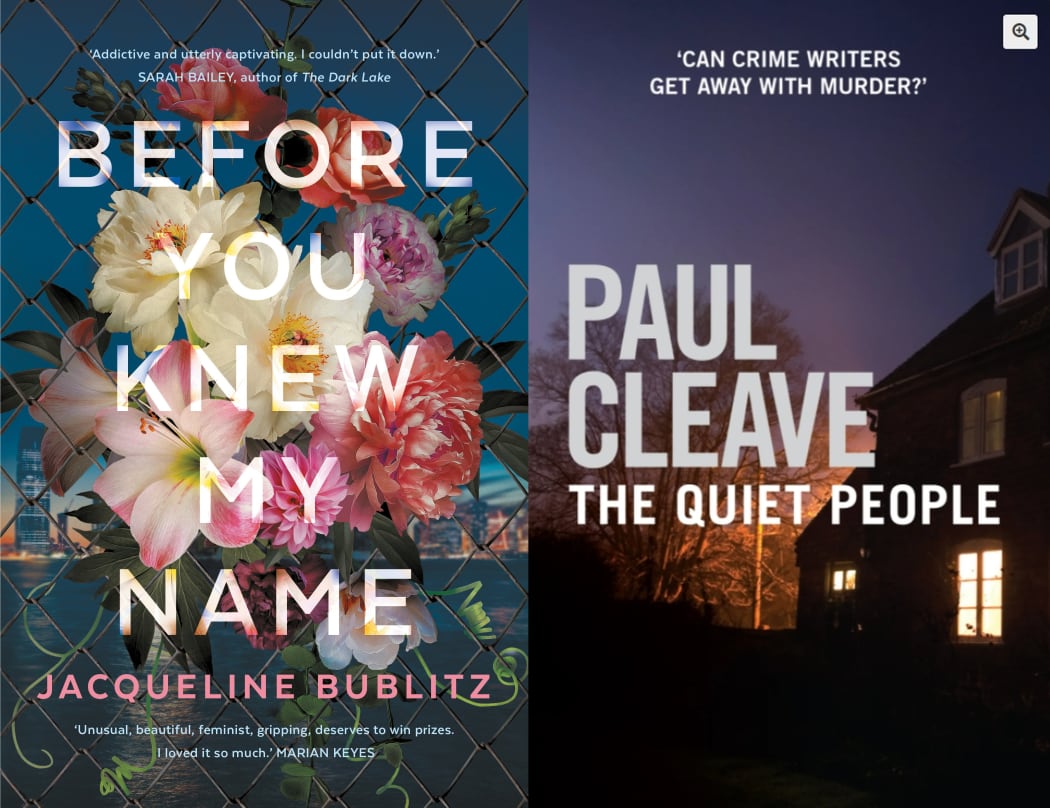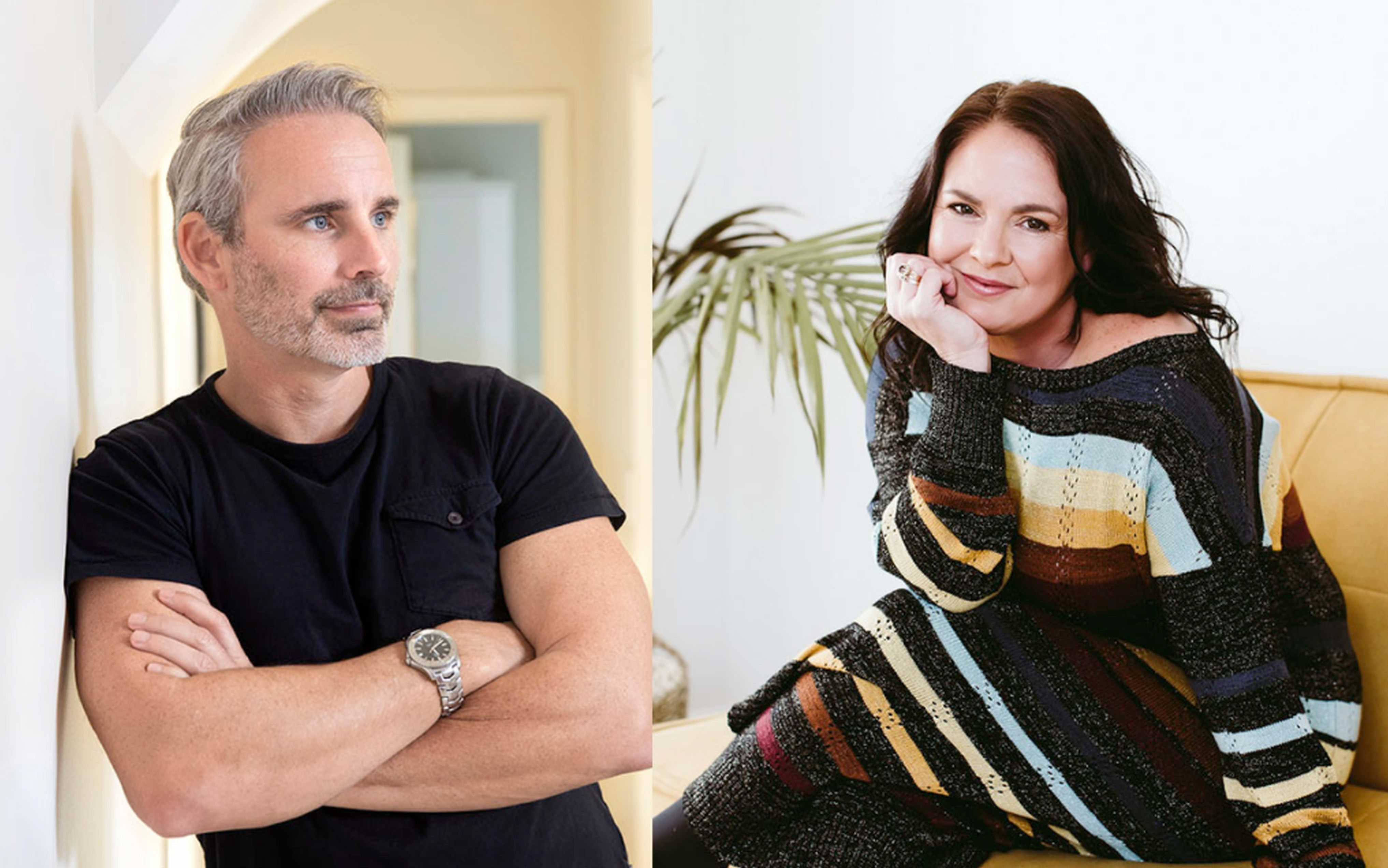
Photo: Pan Macmillan
Highlights of the discussion
Jo Malcolm:
I’ve read that you can write 7000 words a day which seems like an extraordinary number.
Paul Cleave:
Yeah but I’ve got nothing else to do.
Jo Malcolm:
Are you actually making it up as you go along?
Paul Cleave:
Oh yeah, I don’t plot. I wish I could. The only time I’ve ever plotted a book was I was never able to write it.
So that initial idea – it’s normally a character or a big chapter, but never really a concept. I just kind of go for it. I can see the chapter I’m working on and maybe what’s going to come after it, maybe one or two chapters ahead, especially in the beginning.
I’m in my office all day long so when I’m there it’s whatever happens on the day. It’s kind of cool because I’m entertaining myself.
I really don’t know what’s going to happen and when you get those “A-ha!” moments it’s brilliant. I do know a lot of authors who plot [in advance] and I would say it’s probably a 50 50 mix. I’ve spoken to people who spend six months just making notes and having a pin board in their office and just putting it all up there. They can write it pretty quickly because they can pull it all together. I just have a notebook with whatever’s going on but I really have no idea where things are going.
Jo Malcolm:
So, in terms of actually taking your reader along with it you’re almost going through that journey yourself?
Paul Cleave:
Absolutely. And then you fix it up with rewrites. Because you don’t know what’s coming up, you realise you don’t have the foundation, so you’ve got to go back and put those pieces in. It can then be tricky because every little change you make will make a ripple effect that can go right through the book. Sometimes it will get picked up by a copy editor and sometimes it won’t get picked up at all, and you’ll have a reader who will email and say “Well actually you’ve said this,” and you’re like “OMG that’s right.” So that can be very tricky.
Jo Malcolm:
Paul, your novels are based in Christchurch. How important is that location? It’s obviously it’s very familiar to you, but you could set them anywhere.
Paul Cleave:
I like the reality of it. It’s just the mechanics – if I want to have a character move from here to there I know how long it's going to take. I also like having the small-town vibe of Christchurch. If you go to London, for example, and you go to a shopping mall you’re not going to run into your dad or your neighbour but here you generally will. So it allows for a coincidence factor so that you can’t really plot in books. It means you can have a police officer and a serial killer occupy the same space at the same time and not know who each other is. People will accept that because it happens here – maybe not with serial killers but generally, whereas you wouldn’t buy that a city with ten million people in it.
Years and years ago when I first started getting published, people weren’t so thrilled about seeing New Zealand in books. Not just here but also internationally. In America for example all they really wanted to read was American fiction, and the UK buys a lot of UK fiction. There wasn’t really a big appetite for New Zealand fiction so I always tried to make my books so you could place them anywhere in the world and it’s still going to work.
When The Quiet People was going into the UK, it had just got a new publisher there and suddenly it was the opposite. She actually wanted as much as New Zealand we can get into the books now. So moving forward it’s getting stuck driving behind people towing jet boats, sheep crossing a motorway and other little things just to create a picture that in earlier books people would not have wanted.
I’m happy doing the New Zealand stuff now.

Photo: Allen & Unwin, Upstart Press
Jo Malcolm:
Jacqueline, did you know when you wrote it Before You Knew My Name, that it was going to be really good?
Jacqueline Bublitz:
I was writing about the connection formed between the dead person and the person who finds the body. Playing with tropes and conventions felt like a good idea. I still wasn’t sure that I would be up to the task because I hadn’t done it before and I didn’t have any study behind me either or any sort of craft, but to be honest yeah there were a couple of times where I felt that if I can do this.
It took 49 rejections from agents. I was aiming high [with the agents I contacted]. I was getting consistent feedback that I was a lovely writer, and thanked, but told that as the book didn’t fit they weren’t going to be able to market it.
This was the response of the agents, before it even gets to the publisher. Even after we got the publishing deals, I got an email from an agent saying “Loved it but it’s just not going to sell I’m sorry to tell you that in this market there’s just not space for that kind of story. You’re a lovely writer. Best of luck.” So, you can’t have too much of an ego because there are many more “No”s when you’re first starting out at least.
Paul Cleave:
Timing can be everything, I remember when I submitted my first book to a bunch of agency editors in the US and they said the mix of comedy and crime won’t work. The following year the TV show Dexter came out and then as I was submitting it after that they said it had been done. I had a tv show lined up a couple years ago with a really good producer in the UK. It was based on a bunch of the books, we had the script writers on board, we had TV stations including the BBC ready and then the #MeToo movement struck and they just dropped it. It was just bad timing, as writers were “under the knife,” for want of a better term, for how we depict women in novels.
As many crime writers have said, we depict how society treats people, and that goes into novels. Don’t blame crime writers for what’s going on in the world.
About the speakers

Paul Cleave, Jacqueline Bublitz Photo: WORD Christchurch
Jacqueline Bublitz
Jacqueline Bublitz lives between Melbourne, Australia and her hometown on the west coast of New Zealand’s North Island. She wrote her debut novel Before You Knew My Name after spending a summer in New York, where she hung around morgues and the dark corners of city parks (and the human psyche) far too often.
https://jacquelinebublitz.com/about/
Paul Cleave
Paul Cleave is the author of twelve thrillers, eleven of which take place in his hometown of Christchurch. His books have been translated into twenty languages. He’s won the Ngaio Marsh Award three times, the Saint-Maur book festival’s crime novel of the year award, and has been shortlisted for the Edgar and the Barry and the Ned Kelly. The Quiet People is his latest book.
www.paulcleave.com
Twitter: @paulcleave
Instagram: @paul.cleave
Facebook: @paulcleave
This session was recorded in partnership with WORD Christchurch

Photo: WORD Christchurch

